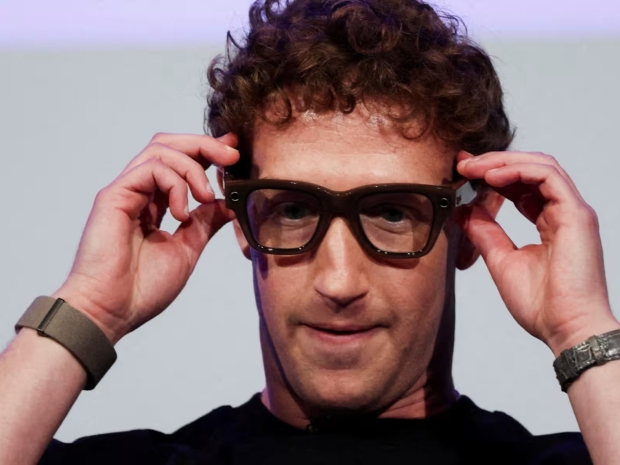On stage at the Meta Connect conference, the Meta chief exec flaunted the “Meta Ray-Ban Display”, which can overlay text messages, video calls and replies from Meta’s AI assistant on a single lens.
He gushed: “Glasses are the only form factor where you can let it see what you see, hear what you hear, talk to you throughout the day and very soon, generate whatever [user interface] you need right in your vision, in real time.”
But the demo hardly screamed “superintelligence”. The Meta boss failed to pick up a call from chief technology officer Andrew Bosworth during the presentation, muttering that he had rehearsed it “a hundred times” and blaming dodgy WiFi.
Zuckerberg clearly hopes the $799 (€745) device, which goes on sale at the end of the month, will one day shove Job’s Mob’s iPhones and Google’s Android slabs into history’s dustbin. The glasses are paired with a wristband that tracks tiny hand movements, which Zuck claimed was “the world’s first mainstream neural interface.”
The launch is the latest in Zuckerberg’s expensive attempts to reinvent his company since the disastrous 2021 metaverse rebrand. With avatars and virtual worlds failing to catch on, Meta is now flogging AI as its new obsession, renaming its restructured unit the “Meta Superintelligence Lab” after shuffling teams four times in six months.
Over the summer, Zuckerberg reportedly courted dozens of top AI researchers from OpenAI and Google with signing bonuses as fat as $100 million (€93 million).
Meta unveiled a refreshed pair of its existing Ray-Ban smart glasses with better battery life, cameras and speakers, though they also flubbed in their live demo by failing to answer basic questions. A new Oakley tie-up was announced too, promising AI-powered sports glasses that sync with Garmin watches and fitness apps.
The hardware itself is being churned out by Chinese contract maker Goertek, which has been on a buying spree to dominate the smart glasses supply chain. That’s awkward timing given Zuckerberg’s increasingly anti-Beijing rhetoric during the second Trump administration.

